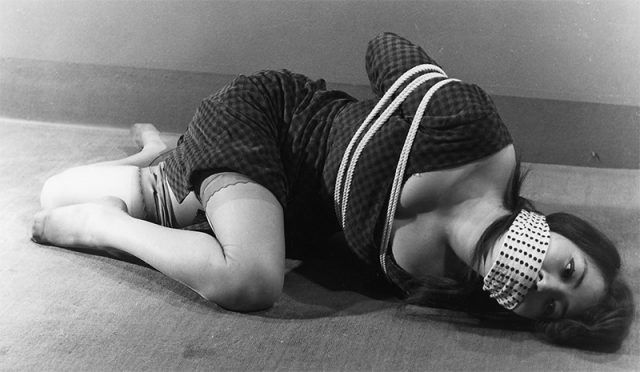It seems like every time I go to Tokyo a theme emerges from the trip. This time the theme is trust.
With any kind of business dealings in Japan, trust or shinrai (信頼) is the foundation of most relationships. Making the effort to travel to Japan and sit across from people and be able to look them in the eye when you discuss things is important and it makes a huge difference in the kinds of things you can get accomplished.
When I talked with my business partner in Japan about visiting, they suggested it would be helpful, so most of the week I had meetings with people who I have been building that trust relationship with for the past year. Sitting with them they opened up in ways they never would have communicating at a distance.
It got me thinking about how the Japanese approach tying as well. In Japan, the concept of consent is not something that is embraced or even particularly well understood. I think the deeper notion of shinrai takes the place of consent and creates a different feeling of security and safety.
During a meeting with Randa Mai, I asked him why he started performing and his answer was straightforward: he wanted to show audiences that kinbaku is fundamentally about trust. He wanted people to see the level of trust that not only could exist, but must exist for two people to play together in an SM show.
Rope and SM, he explained, was about shinrai.
As I began to think more about this, I started to ask around. My friend Desi La told me I needed to look at the concept of makaseru, which means to entrust something to someone else. A concept he felt was a deep part of Japanese culture.
If you have ever been to a sushi bar where the chef chooses your meal, you may be familiar with the concept of omakase, which roughly translates to “I’ll leave it up to you.” The word omakase comes from makaseru and embodies that notion of trusting your well being to another.
More and more, I was finding the idea of shinrai and makaseru appearing in Japanese culture. In particular, it seems to be a foundation for how Japanese tend to think about rope relationships as well.
Unlike the western notion of consent, which presupposed that you know what is going to happen when you tie (e.g. you can only consent to something you have knowledge of), trust presupposes exactly the opposite. Trust is based on the unknown. We don’t trust a sushi chef to bring us what we consent to. We trust him to choose for us specifically without our knowing and based on what he or she thinks is best for us.
Trust, unlike consent, is also relational. It is built over time. It has degrees and granularity. It evolves. It is fragile and requires nurturing and patience. All things that the Western mind has trouble with. Trust relationships are never black and white.
On the other hand, consent is binary. Either you have it or you don’t. It can be given or withdrawn with a word at any time for any reason or for no reason at all. It is fast, clear, easy, and direct. It removes the nebulous human element (or at least purports to) and replaces it with logical, legalistic simplicity.
I think the western need for consent and our constant discussion of it is born from a more fundamental issue: We don’t trust each other very much.
One of the beautiful things about tying in Japan, at least in my experience, is that the relationship, from the first time you tie together, begins with trust. I feel that when I tie here. My partner has entrusted their well being to me. It feels sacred and fragile. I know out relationship will be different after the tie than when it started, hopefully for the better.
I feel it too at home, but only because I have relationships that took years to build that kind of connection. It was an effect of prolonged experience, not an assumption that those relationships were built on.
I have begun to wonder if consent is a clumsy solution to a much bigger problem. Maybe what we need to think about in the west is building a culture of trust. A consent mindset presumes a lack of trust at the outset, so much so that in order to specify that we trust someone, we are forced to use the Orwellian sounding construct of “consensual non-consent.” When we say that, what we really mean is trust.
Just as it is not part of our culture to sit down at a restaurant and say “Surprise ne,’ it is also not part of our culture to value trust in our relationships, even our D/s ones. It is certainly not our starting place.
The problem may be intractable. I don’t know. Maybe embracing consent in the west is just as necessary as embracing shinrai in Japan. I see people working so hard to make consent culture work here. Every time I see a campaign like “Consent is sexy” or “Consent rocks” I cringe a little bit. We generally don’t need to be told what is and isn’t sexy or what does and doesn’t rock. We’ve never needed a campaign like “sex is fun!” because, for the most part, no one needs to be convinced.
I think we need to be more concerned about why we, as a culture, need this legalistic prophylactic before we can even touch each other.
What brought things full circle to me was tying with a woman named Mari at bakuyukai on Saturday night. I asked her what style of tying she most preferred.
Her answer: “Omakase.”







